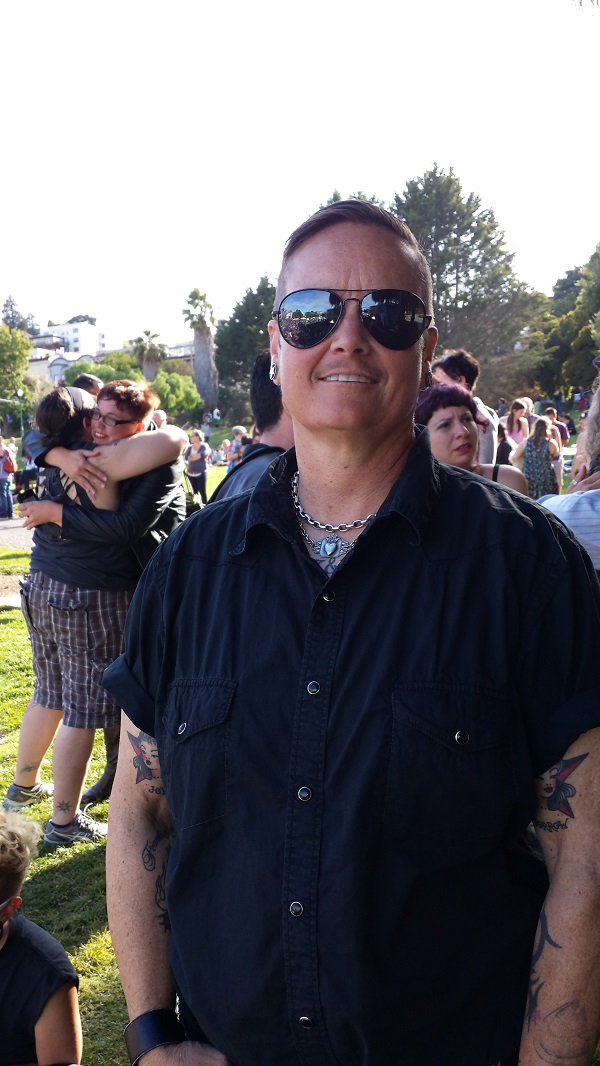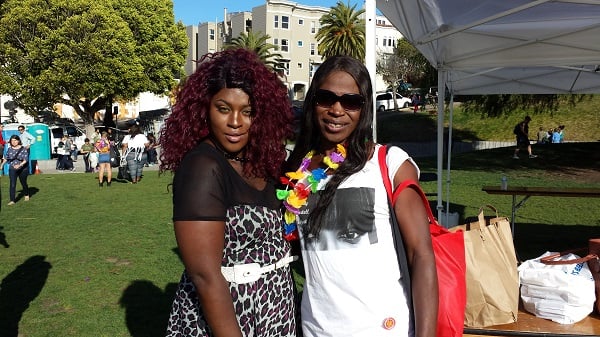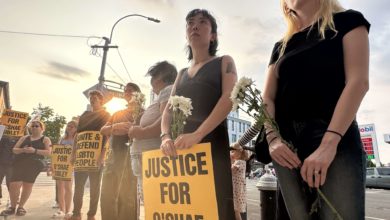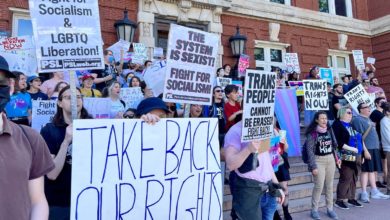Thousands of trans persons and their allies gathered in Dolores Park for a rally celebrating the gains made by the trans community and the need to continue the struggle for liberation and freedom.
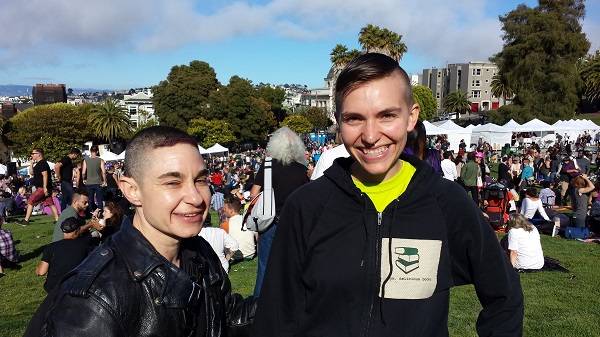
This year’s march honored Vicki Marlane, who was a pioneering transgender performer and fixture in the Tenderloin drag performance scene. Marlane was a role model to transgender women from the 1960s to 2000s. Marlane died in 2011 of AIDS-related causes. The trans community carried out a campaign to have a street named after her, which was unveiled at the end of the march. Marlane became the first transgender person in San Francisco to have a street named in her honor.
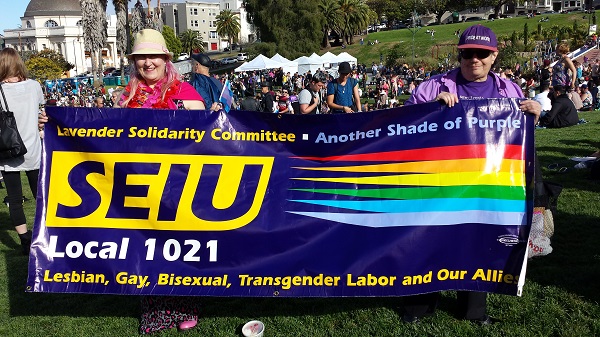
The trans march left Dolores Park and marched to the Compton’s Cafeteria in the Tenderlion neighborhood, the site of a rebellion by transgender people in August of 1966 against police repression. The San Francisco police routinely arrested the drag queens and other transgender people in Compton’s for wearing makeup or not conforming to the narrow definitions of gender of that time.
On that August night, instead of getting to the arrest wagon, the trans community rebelled against police brutality, using salt and pepper shakers among other things to repel the police. When the rebellion was over, one cop car was destroyed. In spite of the arrests that accompanied the rebellion, the united action of the community changed how trans people viewed themselves.
At the rally in Dolores park, transgender people explained the importance of united action. Nic, a genderqueer person said, “This is an important day to be with my people. On an everyday basis you are not around this many transgender, gender non-conformists…nobody is asking me ‘who I am, what I am, why am not this?’ Everybody is accepting for whoever you are.”
Janice Halfin, a 56-year-old African American transgender woman recounted her struggle as a person of color, “A trans person of color means nothing comes easy to you. You already have one strike against you because you are of color.” As a medical assistant who provides services to LGBTQ people in Alameda County, Janice explained the many hurdles trans people face getting healthcare, “They face prejudice from their provider…that the provider won’t give them their hormones….We have trans youth who have been put out by their families. It gets to be a lot of hurdles (for the youth) and they come to us, not only for their support and to get the care and the treatment they need…and it is a safe place.”
Eileen, a lesbian, who was with her union contingent, SEIU Local 1021, said, “it is important that that pride weekend include transgender people, because , some of us feel there is not real gender equality without including transgender people.”
Sam and Ameliana spoke with Liberation News about the challenges of being trans at work. Sam, one of the organizers of the first trans march in 2004, said, “I came out as a trans person at UCSF in 2001. And there were no legal protections. So when I came out I was immediately fired by my supervisor, being told ‘What bathroom will you use, you don’t fit in as part of this team.’ This prompted Sam to work on getting laws to protect trans people in the workplace passed by local San Francisco and California state legislatures.
At the end of the march as thousands of trans people and allies arrived at Turk and Taylor, the site of the Compton’s Cafeteria the feeling of unity and power experienced by those militant trans people who rebelled in August of 1966 was alive and well.


